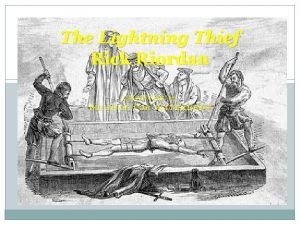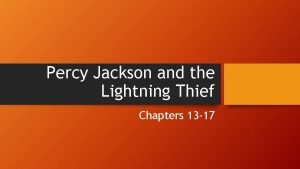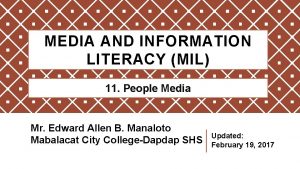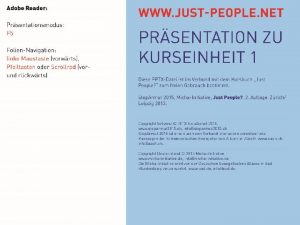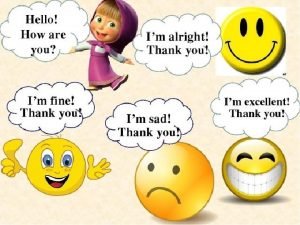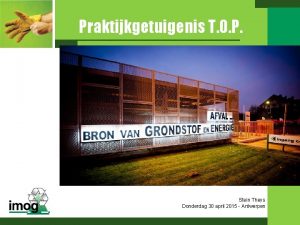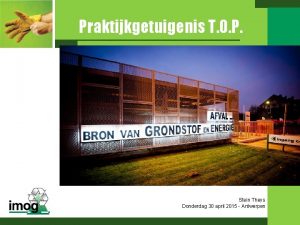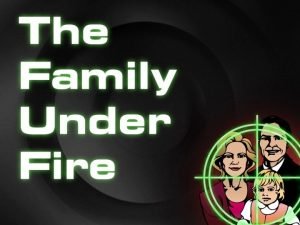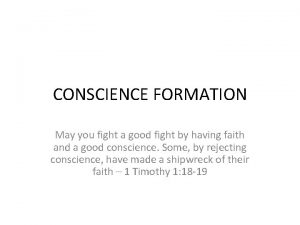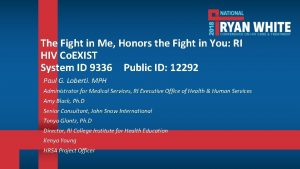Wherever theys a fight so hungry people can





















- Slides: 21

Wherever they's a fight so hungry people can eat, I'll be there. Wherever they's a cop beatin' up a guy, I'll be there. . . I'll be in the way guys yell when they're mad an'—I'll be in the way kids laugh when they're hungry and they know supper's ready. An' when our folk eat the stuff they raise an' live in the houses they build—why, I'll be there. Speakeasies & Hoovervilles

Surviving the Depression • Many people lost jobs, homes, life savings • The shame of poverty caused some to commit suicide, others to avoid seeking help • In cities people built shantytowns, charities ran soup kitchens and bread lines • Hundreds of thousands became migrants • Families sacrificed health care and education, adopted new habits of thriftiness and sharing – examples?

The Dust Bowl • In the 1920 s – Overproduction had drained the soil of nutrients – Plowing had removed grass and trees that help protect the soil • In the 1930 s – Drought and wind caused massive dust storms throughout the Great Plains – Farmers and sharecroppers affected by the Dust Bowl abandoned their farms and moved west

Government Response • The American belief in laissez-faire economics and “rugged individualism” guided government response – what does that mean? • Some cities offered a small amount of direct relief to families (about $2/wk) • President Herbert Hoover believed that the economy would fix itself, that aid to the needy should come from cooperative efforts from the private sector not the government

Hoovervilles • Despite some efforts to help, Hoover was blamed for failing to respond effectively – Asked employers not to cut wages, unions not to strike – Created an organization to coordinate charities – Authorized construction of the Boulder Dam (aka Hoover Dam) to provide jobs, electricity, flood control, and water • Americans got increasingly angry at the President – Some farmers destroyed or refused to sell crops at a loss – Shantytowns became “Hoovervilles” and empty pockets turned inside out were called “Hoover flags”

Election of 1932 • Hoover tried intervention, seen as “too little, too late” – Farm Board, National Credit Corporation, Federal Home Loan Bank Act, Reconstruction Finance Corporation gave money to corporations that Hoover believed would trickle down to citizens through job growth and higher wages – How do you feel about Hoover’s beliefs/response? • His fate was sealed by his response to the Bonus Army – Army sent to use gas to disband a protest of WWI veterans – A baby died, a young boy blinded, two people shot • Franklin D. Roosevelt elected by a landslide, Democrats won large majority in the Senate and the House

The country needs and…demands bold, persistent experimentation. It is common sense to take a method and try it: If it fails, admit it frankly and try another… But above all, try something.

FDR’s New Deal • Assembled a “Brain Trust” to put together a massive set of policies to address problems of the Depression • Focused on the Three R’s – Relief for the needy – Recovery for the economy – Reform of finance • “The only thing we have to fear is fear itself. ” – What did he mean? Do you agree?

The First Hundred Days • His first act was to declare a bank holiday so the Treasury Dept could send inspectors out to banks – Those that were sound could reopen, and receive loans if they needed help – If problems were found, they would stay closed • Glass-Steagall Act established the FDIC to insure bank accounts • Federal Securities Act created the SEC to regulate stock market

• The Agricultural Adjustment Act (AAA) gave farmers money to reduce production – how? why? • Money for food, clothing, and shelter was offered through FERA and the HOLC • Jobs were created through groups like the CCC, CWA, PWA, and TVA • The National Industrial Recovery Act (NIRA) provided money to states to create jobs and also created the NRA to help establish fair practice codes for industries – examples?

Reaction • Public morale and confidence went up – Fireside Chats explained plan, connected with citizens on a personal level – Regulation of Banks was successful – Encouraged repeal of Prohibition – why? • FDR still faced criticism – Direct relief and government works programs were not long-term solutions to job loss and were financed by deficit spending – Businesses argued that regulation stifled recovery and growth – Socialist ideas became more popular amongst those hardest hit – what groups would that be?

“The trouble is, Roosevelt hasn't taken all of my ideas; just part of them. I'm about one hundred yards ahead of him. We're on the same road, but I'm here and he's there. “ – Huey Long “It's all very well for us to laugh over Huey. But actually we have to remember all the time that he really is one the of two most dangerous men in the Country. “ – Franklin D. Roosevelt

The Second Hundred Days Why did FDR need to implement a second wave of reform? • Farmers – incentives for practicing good soil conservation – helped migrants and sharecroppers buy land • Workers – WPA created 8 million jobs for both unskilled workers and professionals – Wagner Act created the NLRB to protect unions – Fair Labor Standards Act established federal guidelines for child labor, minimum wage, and maximum hours

Court Packing Plan • After the Supreme Court ruled the NIRA and AAA unconstitutional, Roosevelt came up with a plan to add 6 new justices to the Supreme Court • The plan failed due to heated opposition and debate – why? • Over the next few years, 7 justices retired so FDR was able to appoint supporters to the Court anyway • NLRB v. Jones and Laughlin Steel decision signaled a change in direction, giving workers the right to unionize and the federal gov’t power to protect this right under the interstate commerce clause. • Union membership grew from 3 to 10 million

Social Security Act • Benefits – Retirement: half of funds come from the worker, half from employer – Death: benefit paid to dependent children – Unemployment: benefits paid through federal tax on employers – Disability: states receive federal aid to pay benefits • Problems – What about the self-employed? – Why is there so much debate about what to do with it now?

Minority Groups • Frances Perkins (Sec. of Labor) and Eleanor Roosevelt played large roles in New Deal – Why are women considered a minority group? • Civil Rights leaders like A. Philip Randolph and Mary Mc. Leod Bethune helped advise the president on racial issues (“Black Cabinet”) – Still no federal support to stop lynching and poll taxes, works programs favored whites • John Collier helped create the Indian Reorganization Act to give Native Americans more autonomy – Continued to face severe economic problems • Mexican Americans benefitted least from New Deal programs because they tended to be migrant farmers

FDR wins again, and again… • Though women and minorities did not benefit equally, they still made gains from New Deal programs and lent support to FDR • The Democratic Party created the New Deal Coalition, including: – Southern whites – African Americans – Labor unions – Northern city governments – Urban immigrants – Religious groups • Did the New Deal end the Great Depression?

Cultural Effects • Despite economic hardships, the entertainment industry grew – why? • Movies were filled with romance, political optimism, average people succeeding – Gone with the Wind, Mr. Smith Goes to Washington • Radio was the center of information and entertainment for families – FDR’s fireside chats, soap operas, children’s programs

• Art, music and literature was “sober and serious” reflecting democratic values, dignity and strength of character, experiences of Dust Bowl and migrants – Woody Guthrie, Grapes of Wrath • Many artists and photographers received support from New Deal programs – American Gothic, Dorothea Lange

Why was this part of Europe hardest hit by the Depression? Why was it the first to recover?

What effects did the Depression have on other parts of the world?
 Hungry hungry panther
Hungry hungry panther What does crusty look like in percy jackson
What does crusty look like in percy jackson Why does percy feel ashamed that poseidon saved him
Why does percy feel ashamed that poseidon saved him I will go wherever you lead me
I will go wherever you lead me Wherever i go andrew chinn
Wherever i go andrew chinn Whats a clause
Whats a clause Shine wherever you go
Shine wherever you go Love act grace nichols
Love act grace nichols I will always follow you whenever and wherever you go i am
I will always follow you whenever and wherever you go i am People media mil
People media mil Black eyed peas
Black eyed peas Transformed people transform people
Transformed people transform people People just people
People just people +sad bored angry scared tired hungry 834
+sad bored angry scared tired hungry 834 Hungry caterpillar song
Hungry caterpillar song Imagine you are hungry
Imagine you are hungry I was so hungry that i even ate the plate
I was so hungry that i even ate the plate Happy sad angry scared surprised
Happy sad angry scared surprised Hungry humble smart interview questions
Hungry humble smart interview questions Hungry planet mexico
Hungry planet mexico Gary robinson died hungry
Gary robinson died hungry I used to pray that god would feed the hungry
I used to pray that god would feed the hungry

